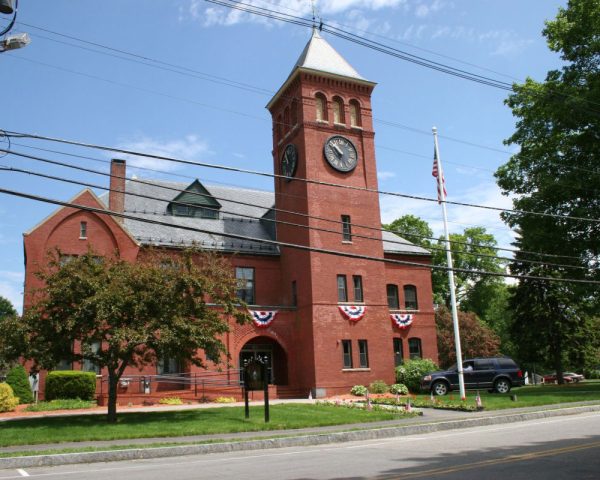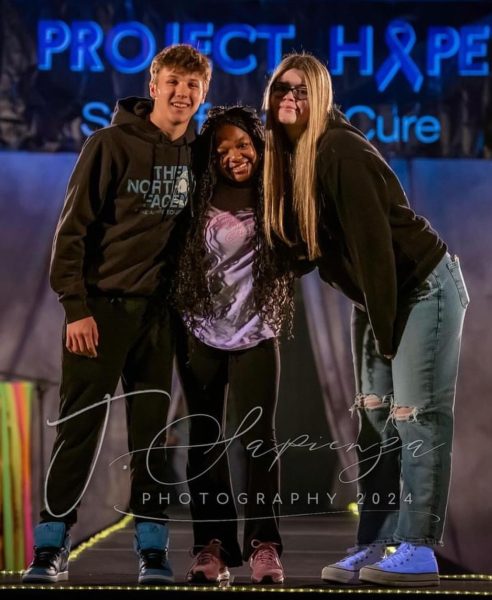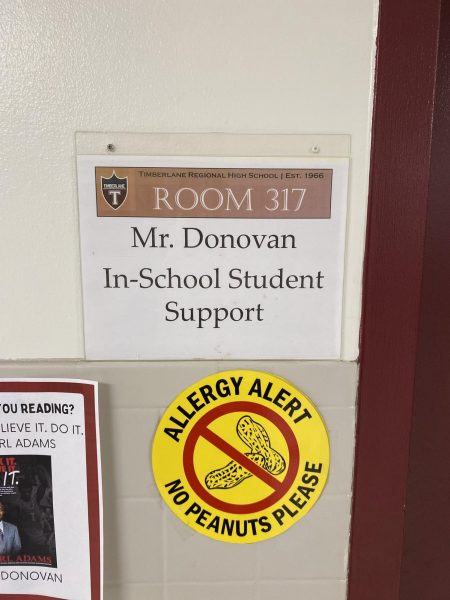Fostering Commutative Growth

Photo Courtesy of Facebook
October 21, 2020
Social-distancing may be keeping us apart, but COVID-19 is also bringing the Timberlane community together.
Often the conversations about facilitating a good educational experience for students lack student involvement. Prior to the global pandemic many Timberlane students felt disconnected from the decision making process as a whole. A need for improved student and administration communication is starting to alleviate this. Students Nen Horan, Maria Heim, and many others felt like they had questions that needed to be answered. Since the beginning of the shift to remote learning they found themselves reaching out to their administrators more frequently. When offered the opportunity to work with teachers, admin, and school board members on a task force on the 2020 school year plan, this was the perfect opportunity to build bridges.
Scott Strainge, Timberlane High School’s Associate Principal, felt that the amplified student voice was, “more important than ever, simply because anything and everything that we [Administration] do is going to impact our students so much on a daily basis. The different types of protocols, how we organize our days, every single thing we do is going to have a ripple effect through everyone who walks in the building.”
Nen Horan, a Timberlane senior, school board representative and a part of the task force for the return to school, felt that there were big barriers between the accessibility of the school board and administration to normal highschool students. Between the vernacular and the length of the meetings Horan felt that the meetings were largely inaccessible to students. Horan set out to remedy this with her run for school board representative. One of her goals was to, “be a connection between the students and the school board in a really concise way”. She summarized her first initiatives to accomplish this, “I have recorded a couple of videos saying this is what happened at the school board meeting, and a a couple of posts like, ‘Hey, this is what you need to know!’” Thinking back to herself as an underclassman, she felt that she would have wanted a quick and easy way to understand what the school board meetings meant for her high school experience.
One thing was made clear. This student involvement is being encouraged to continue. Strainge emphasized the importance of this, not only because of the evolutionary state of trial and error, but also because, “having students advocate for themselves is a skill that is going to serve them well when they do leave these walls. We want to try and develop that and give opportunities for this to happen as much as possible. There’s nothing better than watching their skills grow.” The skills learned from self advocacy are essential to being able to make systemic change, Strange noted how some students have begun to learn about policy and how to affect it. He continued, saying that, “finding ways to open the path for students to be leaders amongst their peers and in the community, it’s the motivating factor for us.”
Both Maria and Nen are encouraging other students to get involved! If you have any questions or concerns you can contact them directly through instagram or email, or consider reaching out to any of your administrators!
Instagrams: @timberlanestudentcouncil • @trsbrepjena •
Emails: [email protected] • [email protected]


